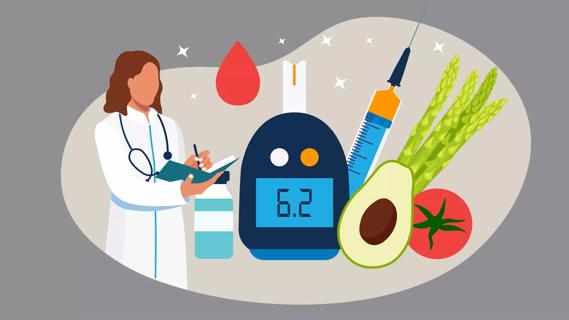Trying to do it all is making us more stressed than ever

Feeling stressed, ladies? You’re not alone. The American Psychological Association reports that women are more likely than men to report increased stress levels — and to feel the physical and emotional symptoms of stress.
Advertisement
Cleveland Clinic is a non-profit academic medical center. Advertising on our site helps support our mission. We do not endorse non-Cleveland Clinic products or services. Policy
Behavioral therapist Amy Brodsky, LISW-S shares insight into stress relief for women.
“We have many of the same stressors as men: family roles, various personal and professional roles, financial issues,” she says. “But in addition to all of that, some stressors apply specifically to women.”
Traditional expectations for women are evolving, but often even in healthy, balanced relationships, women are still likely to feel pressure to not only take care of their careers and their families, but also everyone else in their lives.
“There are very entrenched societal ideas about the ways we are expected to be good wives and mothers,” Brodsky says. “The primary responsibility of taking care of the children, making sure there’s food in the house, and overseeing homework and housework are often assigned to women, whether by society, their relationship, or themselves.”
Reproductive health issues, from monthly periods to fertility problems, are an additional source of stress, Brodsky says — even if women don’t always realize it.
“Several days out of the month, women deal with the additional stressor of experiencing discomfort and possibly pain, and trying to time self-care around that,” she points out. “It’s costly, it’s stressful, it’s messy, and we’re not allowed to talk about it.”
Advertisement
The societal stigma that keeps us from openly discussing these topics can lead women to feel like they have to handle their stress in silence.
The Centers for Disease Control and Prevention report that 1 in 5 women have experienced a completed or attempted rape – and those numbers don’t count sexual and verbal harassment and other assault.
“That’s not to say men are never victimized,” Brodsky says, “but every day, women consider their safety in the world in a very different way from men.”
If you’ve ever made a point to park under the one light in a dark parking lot, carried your keys between your fingers while walking, or told friends the details of an upcoming date just in case something happens to you, you know that safety is ever-present in women’s minds. All that hyper-vigilance can add extra stress to your life.
Stress can cause increased anxiety and unproductive, circular thinking, all of which can manifest in unexpected physical ways — causing everything from sleeplessness to headaches and stomachaches.
Because women tend to want to care for everyone else around them, they may even respond to stress by retreating inward and cutting off friends and family.
“When we have a lot of demands in other roles, we may retreat from social contacts, since we feel we have no more to give.” Brodsky explains. “We only have so much energy.”
If the baby hasn’t been sleeping, you’re facing a big deadline at work, and you’re dealing with an illness in the family, you may pull away from loved ones out of sheer overwhelm. But social isolation can actually increase depression and anxiety, making women feel disconnected from their support systems in times of stress.
“The first thing that springs to mind when we think about unhealthy stress management are those big glasses of wine we call ‘mama’s helper,’” Brodsky says. “We joke about it and normalize it, but we often forget that alcohol is a depressant.”
In times of stress, turning to substances — even legal ones — can worsen anxiety and depression. So wind down the wine and aim for a mentality shift instead.
It’s time for women to embrace the mantra “good enough,” Brodsky says. “It’s a simple phrase, but it makes almost all of us uncomfortable because somewhere along the way, we were told that good enough is not good enough.”
Remind yourself that no one is perfect, and no one expects you to be flawless— not even your partner or your children, who just want you to be you. Sometimes that means a messy living room and takeout for dinner.
When you stop trying to achieve perfection, you leave more time for your health, including eating well, sleeping more and incorporating movement, Brodsky says. Exercise, dance, and even just walking around the block can work wonders on stress, if only you make the time for them — so let that laundry linger and go lace up your sneakers.
Advertisement
The constant news cycle and the pressure of influencers’ seemingly flawless lives on social media can take a toll on our women’s stress levels. Just as our bodies are healthier when we consume nutritious food, so, too, are our brains healthier when we consume a limited amount of bad news and aspirational imagery, Brodsky says.
The same goes for engaging with difficult people. For peace of mind, it’s OK to put the kibosh on conversations with that nosy neighbor or to set time limits on socializing with frustrating friends.
“Limit interactions with people who suck your energy or have unreasonable expectations of you,” Brodsky advises.
There’s help for women under stress — and you don’t have to be in crisis to seek it out. Please reach out to a doctor, therapist, or another trained professional if you:
And if someone you love seems distressingly stressed, don’t hesitate to say that you’re worried — especially if it seems like her stress has morphed into depression. “The more we have these conversations, the more normal these conversations become,” Brodsky says.
Advertisement
Advertisement
Learn more about our editorial process.
Advertisement

It’s common to experience long-term emotional effects, but you don’t have to cope alone — support and treatment can help

Ground yourself in evidence, name your thoughts out loud and meet yourself in the middle to help defuse worst-case scenarios

Fill your coping toolbelt with healthy skills like getting outside, writing in a journal, volunteering, laughing or talking with a friend

We all experience some stress from time to time, but chronic stress can contribute to health issues like diabetes and cardiovascular disease

Getting outside, eating a healthy diet, taking up journaling, listening to music — even cuddling a pet — can provide stress relief

Give these 30+ grocery items a try to help find relief

In response to stress or danger, your brain responds by either defending itself, running away, stopping or reconciling

A diabetes diagnosis, new or long-standing, can trigger reactions like grief, stress, depression and frustration, but symptom relief and help are available

If you’re feeling short of breath, sleep can be tough — propping yourself up or sleeping on your side may help

If you fear the unknown or find yourself needing reassurance often, you may identify with this attachment style

If you’re looking to boost your gut health, it’s better to get fiber from whole foods